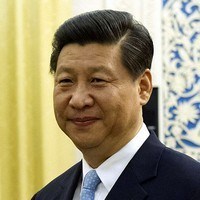Recent developments have led some commentators to worry that China and the United States may stumble into a shooting match. Two events in particular have heightened tensions between Beijing and Washington: Last month, China proclaimed an air defense identification zone covering disputed territories in the East China Sea; then, on Dec. 5, a collision was narrowly avoided between the USS Cowpens and a Chinese naval vessel that was accompanying the Liaoning, China's first aircraft carrier, on its maiden excursion into the South China Sea. Aware of the possibility of a clash that neither country wants, Chinese and American spokesmen have focused on downplaying points of contention between the two countries, with China's Ministry of Defense announcing, "Both sides are willing to strengthen communication, maintain close coordination and make efforts to maintain regional peace and stability."
While attention has focused on the disputed waters of the Western Pacific—with proposals being circulated about ways to address the remaining territorial issues and so mitigate the possibility of violence—so far other potential arenas of conflict have not materialized. Beijing may wish to establish its predominance in East Asia and to insist on a greater role in how world affairs are conducted, including putting more limits on the exercise of U.S. power and seeking to tamp down on instances of humanitarian intervention. But so far it has not decided to embark on the quest of creating an alternative bloc to the United States and its allies. Despite speculation about the emergence of an alliance of convenience between China and other states that share “a common interest in weakening the United States in Eurasia and disrupting its alliances,” Beijing has not thrown open its checkbook to provide aid and succor to any nation with grievances against the United States.
China’s willingness to underwrite first the late Hugo Chavez and now his successor as president of Venezuela, Nicolas Maduro, has often been cited as exhibit A to demonstrate that China is assembling a coalition of anti-American states, in part because Chinese loans to Venezuela in turn allow Caracas to offer low-cost energy and other forms of economic support to other leftist regimes in the hemisphere. Yet China’s support of the Chavista government has a solid economic rationale. Chinese loans and other forms of financing are repaid in oil, and Venezuela surpassed Iran this year to become China’s third-largest supplier of oil, providing some 600,000 barrels per day—a figure that will only increase in the coming years. Exhibit B is usually the Chinese presence in Zimbabwe, where the regime of Robert Mugabe has turned to Beijing to provide a business lifeline to offset Western sanctions and pressure. Yet, in Zimbabwe, China is motivated less by any ideological desire to frustrate Western plans and more by a belief that, in the long term, Beijing will reap the rewards of guaranteed access to the country’s formidable natural resource endowment.

